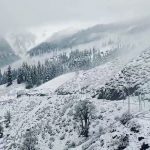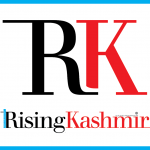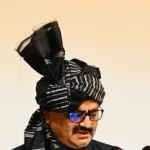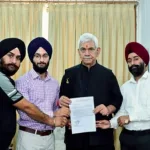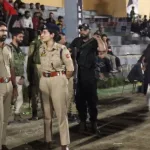Srinagar, Feb 20: As the world observes International Mother Language Day today, Kashmir is grappling with a disturbing trend—the gradual erosion of its mother tongue, Kashmiri. With growing pressure on children to master English and Urdu, many are now growing up disconnected from their native language, a shift that threatens not only linguistic heritage but also the cultural fabric of the region.
Experts warn that Kashmir, renowned for its rich cultural legacy, is witnessing a silent crisis, with the younger generation becoming increasingly distanced from their linguistic roots. Parents, eager to ensure their children’s success in an increasingly competitive world, are encouraging them to prioritize Urdu and English over Kashmiri.
“I see it every day in my classroom,” says Khurshid Ahmad, a teacher in the Department of Education. “Students who have grown up in homes where Kashmiri was spoken simply don’t know how to express themselves fluently in it anymore. It’s heartbreaking. While their proficiency in English and Urdu is improving, they’re losing touch with their cultural heritage.”
Aamir Malik, a postgraduate student at the University of Kashmir, expressed concern over the implications of this shift. “As a student of literature, I understand the importance of preserving the mother tongue,” he says. “But I’m forced to speak in English everywhere, and at home, my parents encourage me to use Urdu. It feels like Kashmiri is becoming irrelevant, and I worry about what this means for our culture and identity.”
For many locals, the loss of Kashmiri is personal. Shabir Ahmed, a resident of Srinagar, laments the growing disconnect. “Everyone wants their children to succeed, but they fail to realize that losing one’s mother tongue means losing a part of one’s soul. I try speaking in Kashmiri at home, but my children insist on using English. They struggle with the language, and it pains me.”
The impact of this shift goes beyond everyday conversations. “The loss of a language means losing access to the literature, songs, and oral traditions that have defined Kashmir for centuries,” Ahmed explains. “Kashmiri music, which is deeply rooted in folk traditions, is passed down through storytelling—storytelling that relies heavily on the language. If the younger generation cannot speak Kashmiri fluently, they will lose the ability to understand and appreciate these cultural expressions.”
Traditional Kashmiri poetry, including the works of celebrated poets like Shams Faqir and Rasul Mir, is intertwined with the very fabric of the language. Without a deep understanding of Kashmiri, future generations may struggle to connect with these timeless literary treasures.
Cultural preservation is critical to maintaining a society’s identity, and Kashmiri has long been the language that binds its speakers to centuries of history, art, and tradition. Yet, its future remains uncertain in the face of globalization, economic pressures, and a shifting educational system. Local activists and scholars are calling for urgent action to protect and promote the language before it fades further into obscurity.
As Kashmir continues to navigate the challenges of modernity, it is clear that preserving Kashmiri—and with it, the region’s cultural heritage—has never been more vital.
International Mother Tongue Day: Kashmir’s cultural identity at risk as Mother Tongue fades among youth

Aatif Qayoom is a Senior Correspondent at Rising Kashmir, covering crime, tourism, sports, and various social issues across Jammu and Kashmir. Known for his accurate and ground-based reporting, he highlights stories that matter to people.
Leave a Comment Leave a Comment


